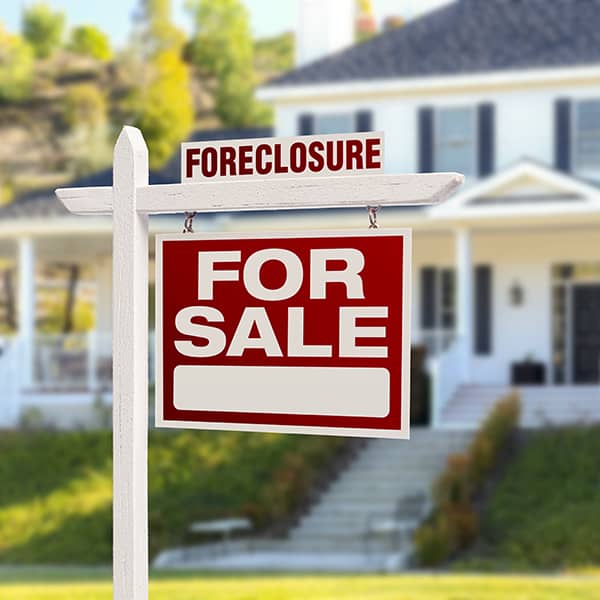The short answer is yes, usually. We can help you stop impending foreclosure when you file bankruptcy. The longer answer is that there are two common types of bankruptcy, Chapter 7 and Chapter 13, and they offer different kinds of foreclosure protection. We can give you a quick overview here for how bankruptcy can stop foreclosure. However, we would love to personally discuss the particulars of your case at a free bankruptcy consultation.
Can Chapter 7 bankruptcy stop foreclosure?
When you file a Chapter 7 bankruptcy in Oregon, something immediately goes into effect called an automatic stay. This stops all judicial proceedings against you and is the equivalent of pushing pause on your financial life. That means collections, harassing phone calls and garnishments all stop immediately. Relief! This gives us an opportunity to help you create a new financial plan and determine which of your debts can be eliminated. This means that foreclosure proceedings will also pause.
However, a Chapter 7 bankruptcy will not give you lasting foreclosure protection. If you are still unable to come current on your mortgage, foreclosure could resume, even after you file for bankruptcy. Knowing if you will be able to come current and make your payments after your bankruptcy is key to making a decision on how to proceed.
Can Chapter 13 bankruptcy stop foreclosure?
For long-term protection against foreclosure we usually recommend a Chapter 13 bankruptcy. Chapter 13 is sometimes called a structured repayment plan. It allows much more flexibility to determine what you can realistically pay toward your debt and you can reduce your monthly payments or most of your debt. We’ll help you evaluate your income and your debts and set up a plan with a bankruptcy trustee. The plan requires you pay only your net disposable income to the trustee. This may allow you time to actually catch up and keep your home.
Filing Chapter 13 bankruptcy is a longer and more complicated process. But it also provides you many more options, and can discharge more types of debt than the more simple Chapter 7. It can protect people you love and help you keep things that important to you. You’ll still make payments, but you won’t be spinning your wheels on interest any more. You’ll pay only what you can afford, and at the end of the agreed upon time (usually 3 or 5 years), you’ll be free.
For the best foreclosure protection, you’ll need a real bankruptcy advocate.
Not every bankruptcy firm in Oregon handles Chapter 13 bankruptcies. A Chapter 13 bankruptcy requires more work and time both from you and from your attorney. We’re happy to offer experience and expertise in every form of bankruptcy. We’ve helped friends and neighbors all over the state find relief under Chapter 13 and we can help you too. Learn more about Chapter 13 bankruptcy here.


One of my friend opened up a business and now it is going bankrupt due to the pandemic. Its helpful when you said that during a foreclosure, knowing if you will be able to make your payments after your bankruptcy is important for proceeding. Thanks for the article bankruptcy and foreclosure and I will be sending your article to my friend so that he can find himself a good lawyer.
A business that one of my friends started is currently failing as a result of the pandemic. It was useful when you stated that deciding whether you will be able to make your payments after filing for bankruptcy is crucial to moving forward with a foreclosure. Thanks for the post about bankruptcy and foreclosure and I’ll give it to a friend so he can find a reputable attorney.
Due to the epidemic, a company that one of my friends founded is currently failing. It was helpful when you said that making the decision to move forward with a foreclosure depends on whether you will be able to make your payments after declaring bankruptcy. I appreciate your post about bankruptcy and foreclosure, and I’ll pass it along to a friend so he can find a trustworthy lawyer.
Pingback: What is a loan modification? | Rank & Karnes Law, P.C.